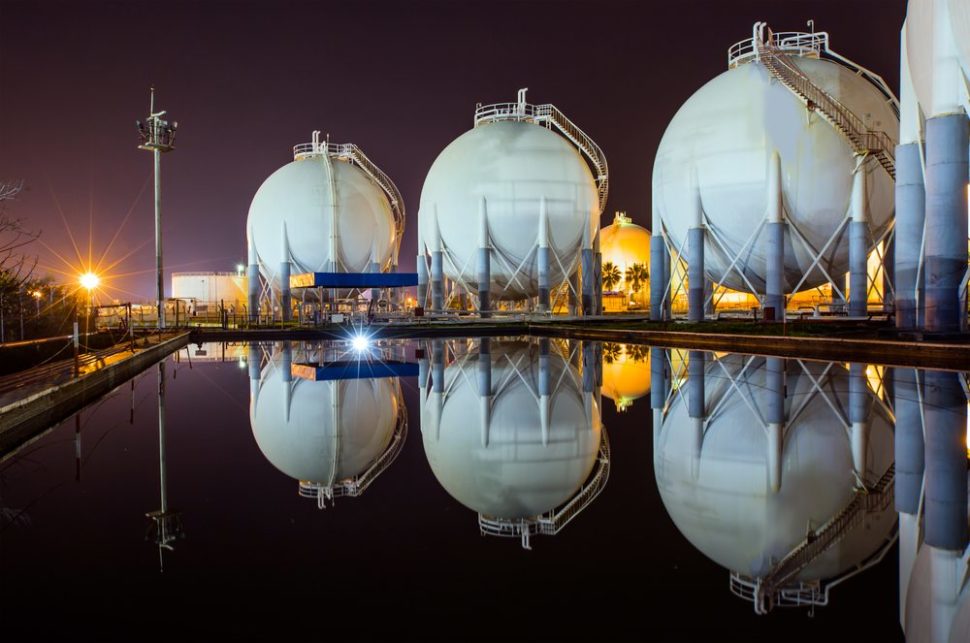Scientists have developed a direct, one-step method to convert carbon dioxide and methane into liquid fuels and chemicals, all at normal ambient temperatures.
LNG (Liquefied Natural Gas) consists primarily of methane (more than 90%). An energy rich substance, methane is the third-most-used energy source in the world (after oil and coal), but is also a greenhouse gas that’s 30 times more potent than CO2.
According to the U.S. Environmental Defense Fund (EDF), methane emissions account for a quarter of all manmade global warming.
Recycling methane is a major scientific, environmental, and economic challenge, but one that could produce many benefits if innovation strikes.
One-Stage Methane to Liquid Fuel Activation Breakthrough.Click To TweetRevalorization of Methane as a Liquid Fuel
LNG is natural gas converted in liquid form, a process achieved when the gas is cooled to a temperature of about -161 ° C at atmospheric pressure. After treatment, the liquefaction makes it possible to condense the natural gas into LNG by reducing its volume by a factor of nearly 600 while keeping the same energetic value.
For industries, liquefaction reduces gas volume much more than compression, facilitates its storage and transport, and thus cuts associated costs.
When pipeline transportation is not possible, LNG can be shipped by LNG carriers to consumption areas. The compactness of storage at LNG terminals is also a strong argument in favor of the development of the LNG sector.
Producing “syngas” from methane, a synthetic gas that’s a liquid fuel precursor is an energy-intensive, costly step in conventional fuel production processes.
Researchers are working on efficient and economical methods to converting natural gas into liquid fuel to reduce our dependence on fossil fuels and greenhouse gas emissions.
What’s more, researchers are exploring new ways for direct and low-temperature catalytic conversion of methane to methanol (without syngas as an intermediary).
In an attempt to address technical issues and reduce the costs associated with traditional gas-to-liquid (GTL) processes, scientists have developed an innovative plasma synthesis method to convert CO2 and methane into liquid fuels and valuable chemicals.
One-Stage Methane to Liquid Fuel Activation Breakthrough
Direct conversion of CO2 and CH4 into liquid fuels is a very promising way to reduce the production costs of liquid fuels and would have significant environmental and industrial benefits.
Researchers at the University of Liverpool have succeeded in developing a direct, one-step process for the conversion of methane (CH4) and carbon dioxide (CO2) into liquid fuels.
Per a paper published in the journal Angewandte Chemie, the cost-effective and efficient plasma synthesis method enables the conversion of CH4 and CO2 (directly in a single step) into liquid fuels and other valuable chemicals, such as methanol, ethanol, acetic acid, and formaldehyde.
Bypassing the challenging syngas stage altogether, the novel plasma synthesis process has high selectivity (50–60%) at ambient room temperature (~30 °C) and atmospheric pressure.
“This is a major breakthrough technology that has great potential to deliver a step-change in future methane activation, CO2 conversion and utilization and chemical energy storage,” said Dr. Xin Tu from the University of Liverpool, “which is also of huge relevance to the energy and chemical industry and could help to tackle the challenges of global warming and greenhouse gas effect.”



















Comments (0)
Most Recent